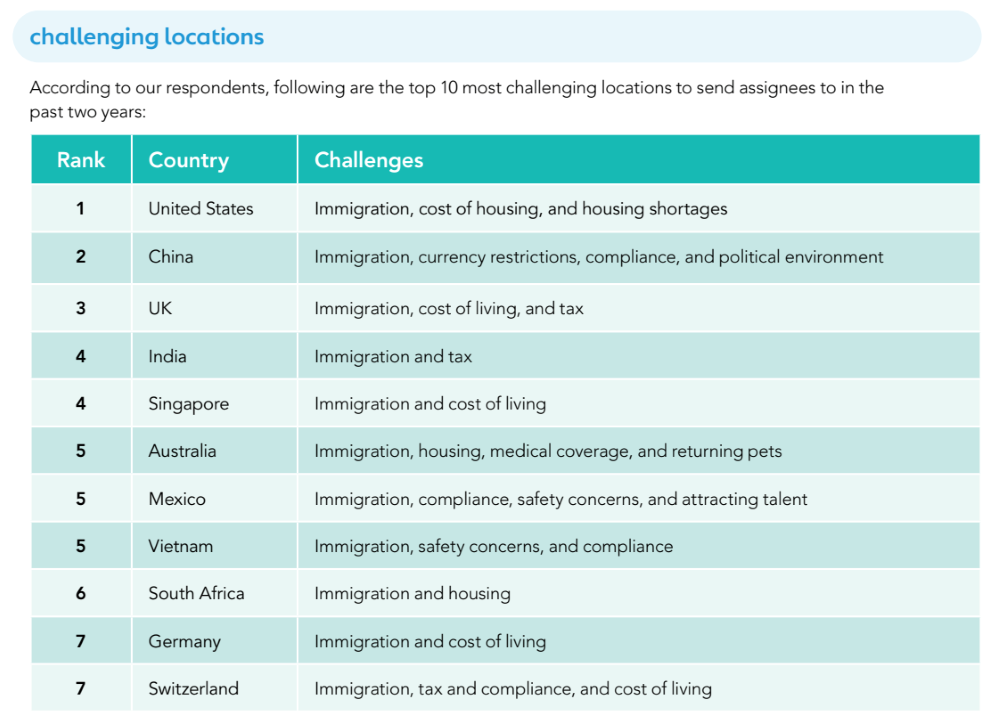New report highlights challenges of housing, politics, taxes and cost of living

Planning to reassign employees overseas? A new report has found that the United States is the most challenging location to send assignees to, with immigration emerging as a top challenge in talent mobility.
Global mobility professionals said they struggle with immigration complexities when sending employees to the United States, according to a new report from Cartus.
They also cited the cost of housing and housing shortages in the US as challenges, because of real estate market conditions.
China is the second-hardest nation to send employees to, with reasons being immigration, currency restrictions, compliance, and political environment.
The United Kingdom came in third, with immigration, cost of living, and tax being the biggest struggles for global mobility professionals.
 Source: Cartus' Global Talent Mobility Survey 2024
Source: Cartus' Global Talent Mobility Survey 2024
Immigration as a major hurdle
Based on the list, immigration appeared as a major hurdle in all the most challenging destinations for assignees across the world.
The report said visa wait times, complex processes, and overarching costs remain the dominant issues regarding immigration.
"While immigration has always been a highly complex element of international relocation, the recent increase in employee-initiated moves and cross-border remote work may add to this challenge going forward," the report read.
Mobility volume for organisations
The findings come as 70% of the report's respondents said their organisation's mobility volume went up or remained the same in the last two years.
The lack of available local talent is driving mobility for 56% of organisations, according to the report. Others cited company growth (52%) and expansion into different markets (48%).
On the other hand, those who reported a decrease in mobility volume cited cost containment strategy as the top reason (70%). Others said reduced volume in different markets (26%) and negative company growth (23%).
Mobility activities in 2024
This year, the report found that highly anticipated mobility activities will be:
- Business travelling (68%)
- Intra-country, international long-term, and international short-term moves (67%)
- Employee-requested moves (60%)
According to the report, intentions behind self-initiated moves have evolved to be more talent driven, instead of previous reasons such as familial needs.
Mobility teams need to have policies in place fit for this emerging new purpose, said Cartus.
"In any case, organisations need should take proactive measures to clarify and align employee expectations via a well-thought-out policy and communication strategy.”








